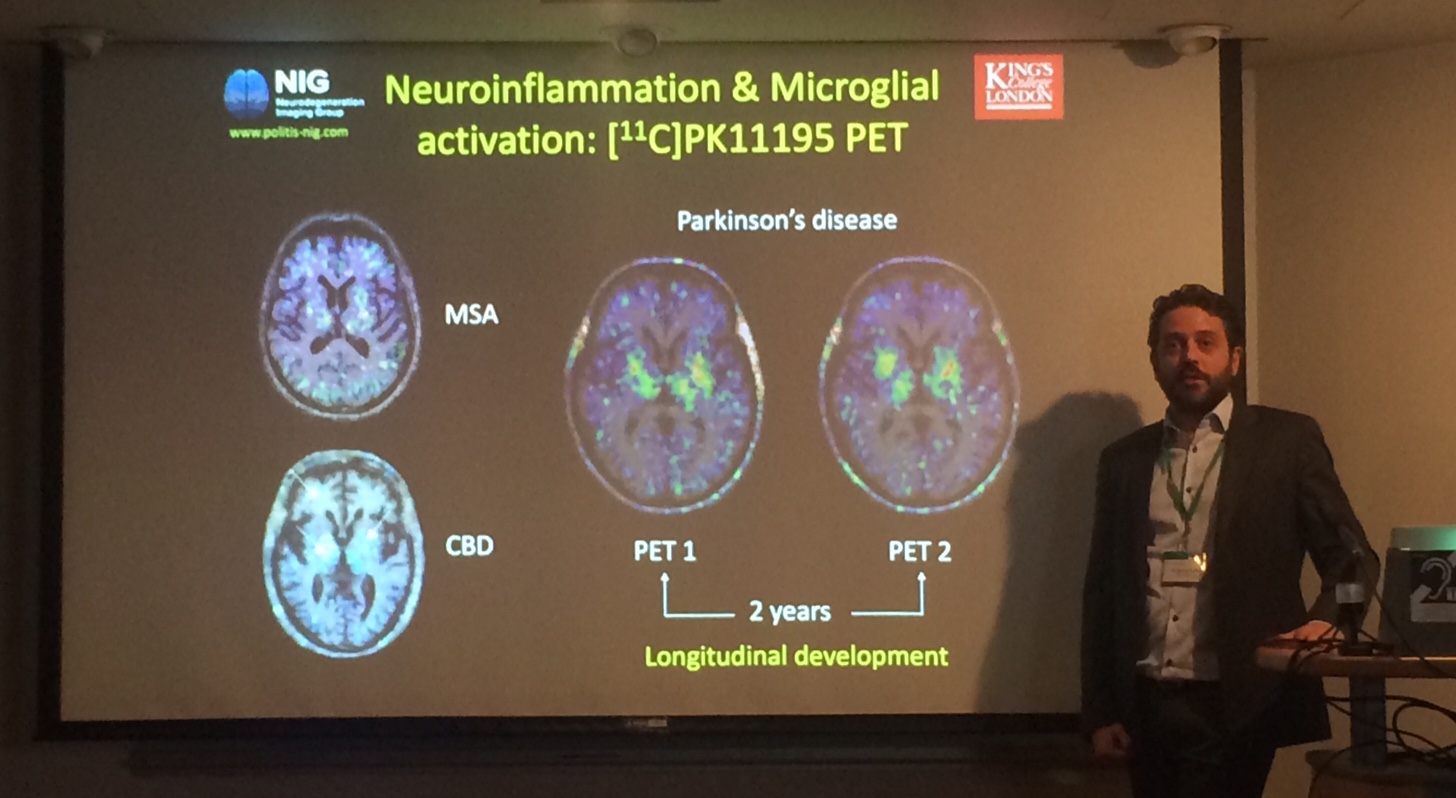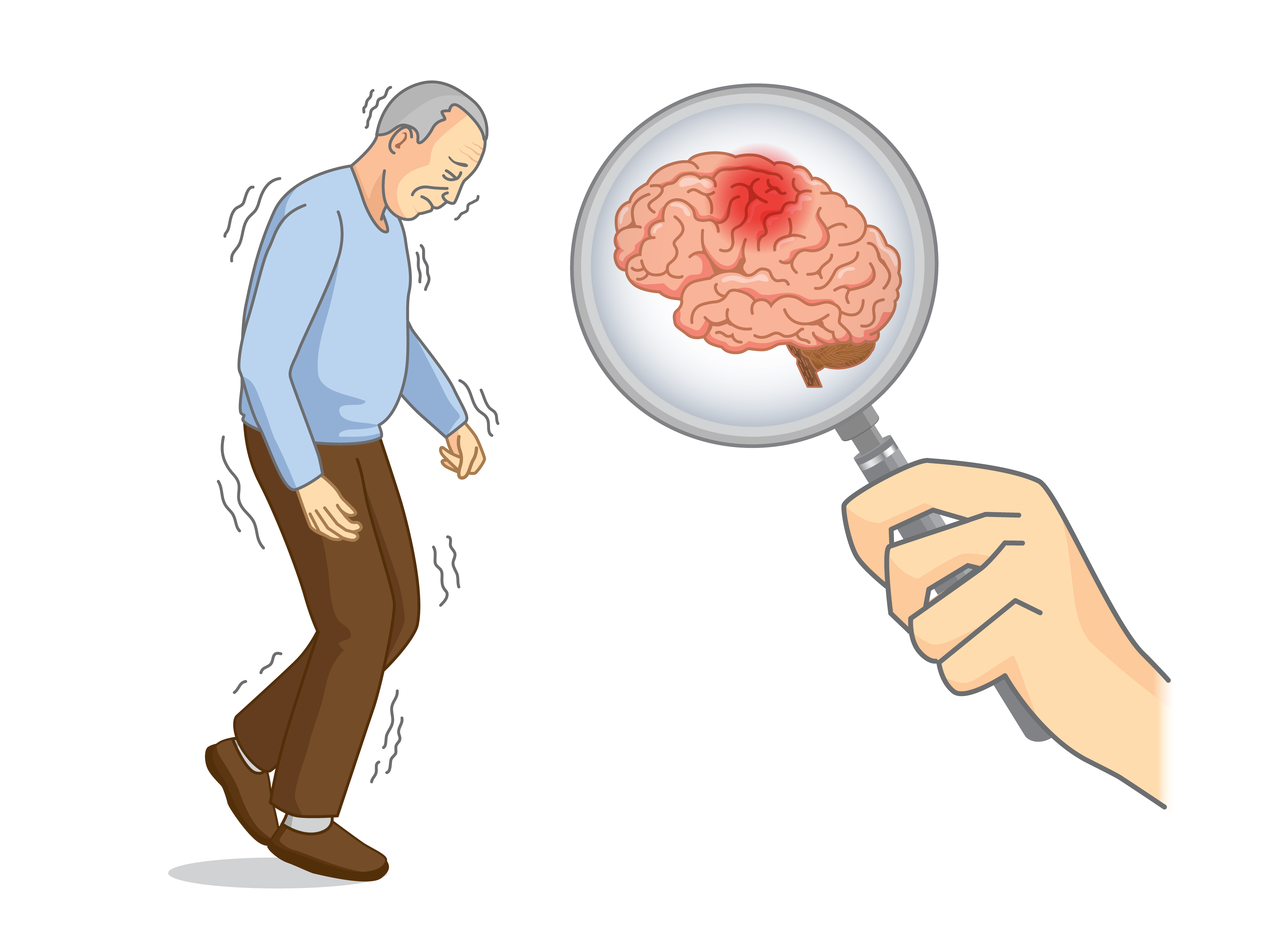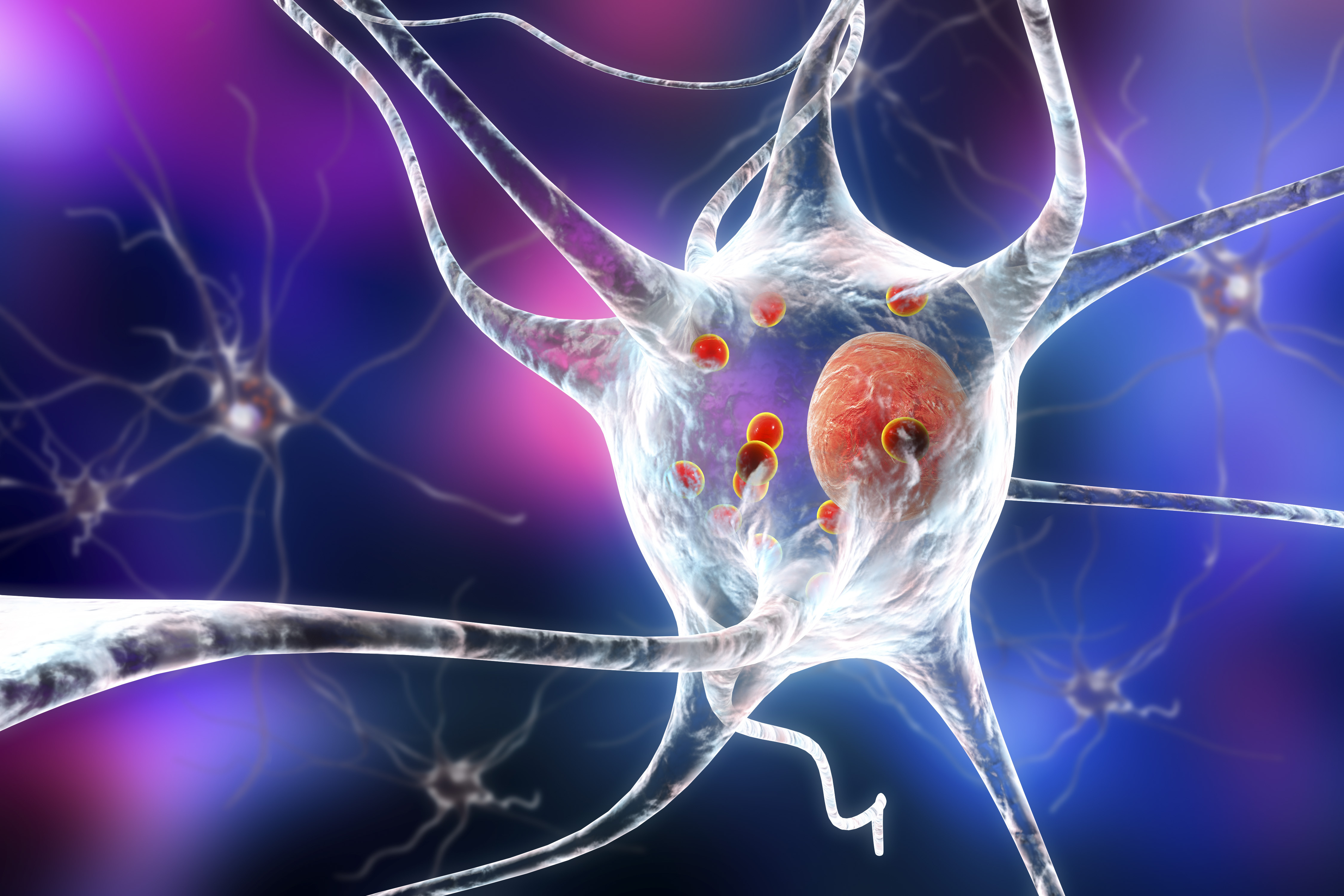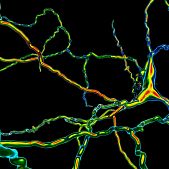
Study reveals roots of Parkinson’s disease in the brain
Researchers from Greece, Great Britain and Italy have uncovered the earliest signs of Parkinson’s disease in the brain, many years before patients show any symptoms. The results, published in journal The Lancet Neurology, challenge the traditional view of the disease and could potentially lead to screening tools for identifying people at greatest risk.
The new study provides the first evidence of a central role for the brain chemical serotonin in the very earliest stages of Parkinson’s. The results suggest changes to the serotonin system could act as a key early warning signal for the disease.
Marios Politis
Parkinson’s disease is the second most common neurodegenerative disorder, after Alzheimer’s disease. The disease is characterised by movement and cognitive problems but is known to become established in the brain a long time before patients are diagnosed. Studying the crucial early stages of the disease, when treatment could potentially slow its progress, is a huge challenge.
Chief investigator Professor Marios Politis, Lily Safra Professor of Neurology & Neuroimaging at the Institute of Psychiatry, Psychology & Neuroscience, says: ‘Parkinson’s disease has traditionally been thought of as occurring due to damage in the dopamine system, but we show that changes to the serotonin system come first, occurring many years before patients begin to show symptoms. Our results suggest that early detection of changes in the serotonin system could open doors to the development of new therapies to slow, and ultimately prevent, progression of Parkinson’s disease.’
People with Parkinson’s disease have build-ups of the protein α-synuclein in the brain. While there is no clear cause for most people, a minority of cases are caused by genetic mutations. People with mutations in the α-synuclein (SNCA) gene are extremely rare but are almost certain to develop Parkinson’s disease during their lifetime, making them ideal for studying the train of biological events that leads to Parkinson’s disease.
The SNCA genetic mutation originates in villages in the northern Peloponnese in Greece and can also be found in people who migrated to nearby regions in Italy. Over two years, the researchers identified 14 people with the SNCA gene mutation from Greece and Italy and flew them to London for brain imaging and clinical assessments. Half of the participants had not begun to show any symptoms of Parkinson’s.
Data from the 14 people with SNCA gene mutations were compared with 65 patients with non-genetic Parkinson’s disease and 25 healthy volunteers. The researchers found that the serotonin system starts to malfunction in people with Parkinson’s well before symptoms affecting movement occur, and before the first changes in the dopamine system.
Brain imaging was carried out using PET scans which are expensive and difficult to carry out. The researchers say further work is required to develop the scanning techniques in order to make them more affordable and straightforward for use as screening tools.
Professors Leonidas Stefanis,Christos Koros, Maria Stamelou and Athina Simitsι participated in the research, on behalf of the Medical School of the University of Athens and the University Hospital “Attikon”, while George Dervenoulas and Sotiris Polychronis joined from King’s College.


















Rose Mountford
-28/09/2020 3:00 pm
At the end of the full treatment course, the disease is totally under control. No case of dementia, hallucination, weakness, muscle pain or tremors. family doctor started me on Mayaka Natural Clinic Parkinson’s Disease Herbal mixture, 2 months into treatment I improved dramatically. At the end of the full treatment course, the disease is totally under control. No case of dementia, hallucination, weakness, muscle pain or tremors. visit mayakanaturalclinic . c o m
Olivia Isabella
-21/03/2021 10:16 pm
My husband was diagnosed with early onset Parkinson’s disease at 57.his symptoms were shuffling of feet,slurred speech, low volume speech, degradation of hand writing, horrible driving skills, right arm held at 45 degree angle, things were tough for me, but now he finally free from the disease with the help of total cure ultimate health home, he now walks properly and all symptoms has reversed, he had trouble with balance especially at night, getting into the shower and exiting it is difficult,getting into bed is also another thing he finds impossible.we had to find a better solution for his condition which has really helped him a lot,the biggest helped we had was ultimatehealthhome they walked us through the proper steps,am highly recommended this ultimatehealthhome@gmail.com to anyone who needs help.
victria
-02/09/2021 5:24 pm
My dad was diagnosed with Parkinson’s disease.his symptoms were shuffling of feet,slurred speech,degradation of hand writing, horrible driving skills, right arm held at 46 degree angle, things were tough for me, but now he finally free from the disease with the help of total cure from ULTIMATE LIFE CLINIC, he now walks properly and all symptoms has reversed, he was having trouble with balance especially at night, getting into the shower and exiting it is difficult,getting into bed is also another thing he finds impossible.we had to find a better solution for his condition which really helped him a lot,the biggest helped we had was ultimate life clinic they walked us through the proper steps,i recommended this http://www.ultimatelifeclinic.com to anyone who also needs help.